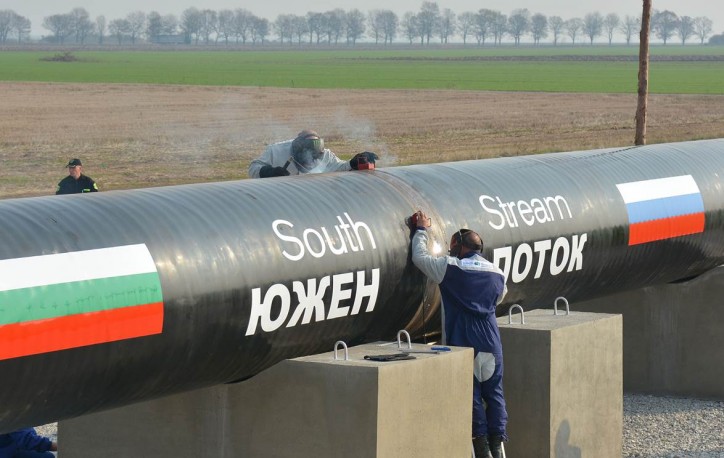In an interview for Reuters on Wednesday, a senior official said that Bulgaria intended to obtain a license for oil and gas in the Black Sea region. The Balkan country seeks an opportunity to turn itself into an energy hub and to re-arrange the European pipeline map.
South Stream is abandoned Russian pipeline project for transportation of natural gas of the Russian Federation through the Black Sea to Bulgaria and other countries in EU which are now locked in the gasification plan.

Photo: Gazprom
Last year, the plan was abandoned by Russia. The European Union forced the Federation to develop a new route, Turkish Stream, where the EU member Bulgaria is not part of it.
Has been facing attempts to obstruct its gas strategy, during the week Gazprom warned the European Union.
A meeting of the Environment and EU energy ministers took place in Riga, where in an interview the Deputy Energy Minister of Bulgaria - Zhecho Stankov coordinated the policy of his Ministry with the European Commission’s plans to find other possible routes and energy suppliers to Russia.
Mr. Stankov said that Bulgarian gas-consumption depended 95% on the Russian gas and the country had never been officially notified of South Stream’s collapse. The minister mentioned as well that Bulgaria had 50% share of Russia’s Gazprom and the holding company is still active.
But the main goal in the energy policy of Bulgaria is diversification from Russia and the country to become an energy hub in the Balkans.
The Deputy Energy Minister of Bulgaria said in the next few days, in order to be obtained license for the opening of the Black Sea’s Silistar gas block which covers 7,000 sq km and the 4,000- sq km Teres oil gas block, details would be formally released.
In the Reuters interview he said:
“We want to change to south to north”, saying the status quo was from Russian north to the south. “We want the pipelines from the Trans Adriatic (TAP) and the Trans Anatolian (TANAP) projects, as well as a vertical corridor”
The energy minister Stankov made a reference to the Southern Corridor route through which the gas is carried towards Austria and on to northern Europe.
The TAP project was designed to link to the TANAP, across Turkey, where non-Russian gas has to be transported to Italy and the Greek-Turkish border.
Mr. Stankov expectations are mainly for a help from the EU Commission’s executives for more interconnections to be built.
Because of the pipeline infrastructure on its territory and the strategic geographical position in the Balkans, Bulgaria has the chance to be something like a gas hub, according to Mr. Stankov.
Experts and analysts said that it could take about 10 years for significant supplies to begin flowing. More gas research in the Black Sea region has to be made because of the resource potential, which remains largely unexplored.
The EU Commission said their first concern is to develop links across the South and East Europe.
Specialists see better perspectives for the fuel industry in Black Sea region due to the improvement of the business climate and new technologies.